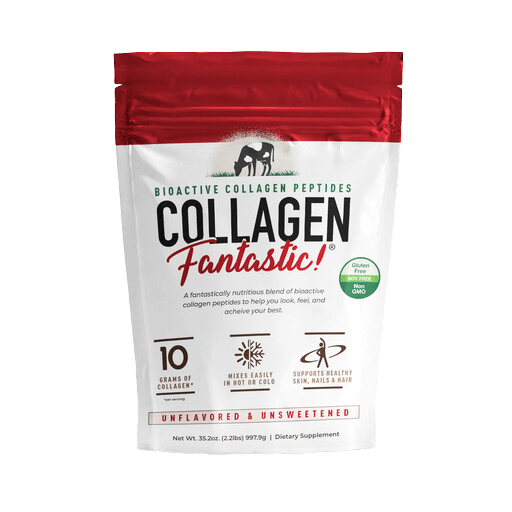Whey protein is a popular choice among fitness enthusiasts and those looking to boost their protein intake. It's an easy and effective way to increase daily protein consumption, often praised for its benefits in building muscle mass and aiding recovery after workouts. However, along with these benefits comes a common concern: can whey protein contribute to unwanted weight gain? This question lingers in the minds of many, especially for those mindful of their weight management goals. Understanding the real impact of whey protein on body weight is essential to make informed decisions about its use.
When consumed correctly, whey protein offers a wide range of benefits beyond muscle building. It is packed with essential amino acids that support overall health and fitness. Yet, like any other food, its impact on weight depends on how it fits into your overall dietary habits and activity levels. Let's explore the role of whey protein in diet and how it interacts with various factors contributing to weight gain or loss.
Understanding Whey Protein Powder
Whey protein is a byproduct of cheese production, derived from the liquid part that separates from milk. It's a complete protein source, providing all nine essential amino acids necessary for muscle repair and growth. This makes it a valuable supplement for athletes, bodybuilders, and anyone looking to enhance their physical performance. But what sets whey protein powder apart from other protein sources?
Here's a quick breakdown:
- Concentrate: This type of whey protein contains low levels of fat and carbohydrates, offering a protein content of around 70-80%. It's often considered the most flavorful due to the presence of lactose and fats.
- Isolate: Through additional processing, whey protein isolate achieves a higher protein concentration of 90% or more, with minimal lactose and fat. This makes it a preferred choice for those with lactose intolerance.
- Hydrolysate: Often referred to as pre-digested whey, this type undergoes partial hydrolysis, making it easier to digest. It’s commonly used in medical protein supplements and infant formulas.
The nutritional profile of whey protein is impressive. It is rich in branched-chain amino acids (BCAAs), which play a critical role in muscle protein synthesis and recovery. The versatility of whey protein allows it to be used in various ways—from shakes to smoothies, enhancing both the flavor and nutritional value of meals.
Factors Influencing Weight Gain
Understanding weight gain involves looking at the balance between calories consumed and burned. Whey protein by itself won't lead to extra pounds unless it pushes calorie intake beyond what is required for daily needs. It's vital to pay attention to serving sizes and how whey protein fits into a balanced diet. Portion control and timing are equally important. Consuming whey protein shortly after workouts can aid recovery and muscle growth without adding unnecessary calories.
Exercise plays a crucial role as well. When paired with strength training, whey protein can help increase muscle mass, which in turn, may boost metabolism and aid weight management. Cardio, on the other hand, is fantastic for burning calories and maintaining overall fitness. A combination of these exercises with the appropriate protein intake often leads to better body composition and helps avoid undesirable weight gain.
Myths vs. Facts
There's a persistent myth that whey protein leads to fat gain. This misconception stems from misunderstandings about how protein is utilized in the body. Scientific research supports that whey protein contributes more to muscle building and fat loss rather than weight gain when part of a balanced diet. Many believe that all protein supplements automatically add weight, but the facts show that they actually play a role in preserving lean body mass while lowering fat percentage.
By integrating whey protein wisely, it becomes a valuable ally in a well-rounded nutrition plan. Myth-busting is necessary to get rid of any lingering doubts. Whey protein can easily be part of a balanced diet without leading to unwanted weight gain if used appropriately.
Tips for Using Whey Protein Effectively
Efficiency is key when using whey protein. Here are some smart tips:
1. Incorporation into Diet: Add whey protein to meals by blending it into shakes or mixing it with oats or yogurt. This can enhance your protein intake without overloading on calories.
2. Serving Sizes and Timing: Stick to the recommended serving size, which is usually around 20-30 grams per serving. The ideal time is post-workout when your muscles are eager for nutrients to aid recovery.
3. Quality Matters: Choose high-quality whey protein that is clean and has minimal additives and no added sugars. This ensures that you get the best out of your supplement without any unwanted extras.
Make the Most Out of Whey Protein
Harnessing the benefits of whey protein can significantly support your health and fitness goals. It helps build muscle, supports weight management, and contributes to faster recovery. Relying on trusted sources ensures you get effective products.
Selecting the right whey protein can make your journey to achieving your fitness targets smoother and more fulfilling. High-quality whey protein is a great addition to your diet, providing the support you need without the worry of adding extra unwanted weight. As you pursue your health and fitness journey, remember that the correct use of whey protein is your ally in reaching your goals.
Elevate your fitness journey with the right tools. Explore our range of whey protein powder to find the perfect fit for your health and fitness goals. Trust Fantastic Nutrition to provide products that help you build muscle, manage weight, and recover faster.











